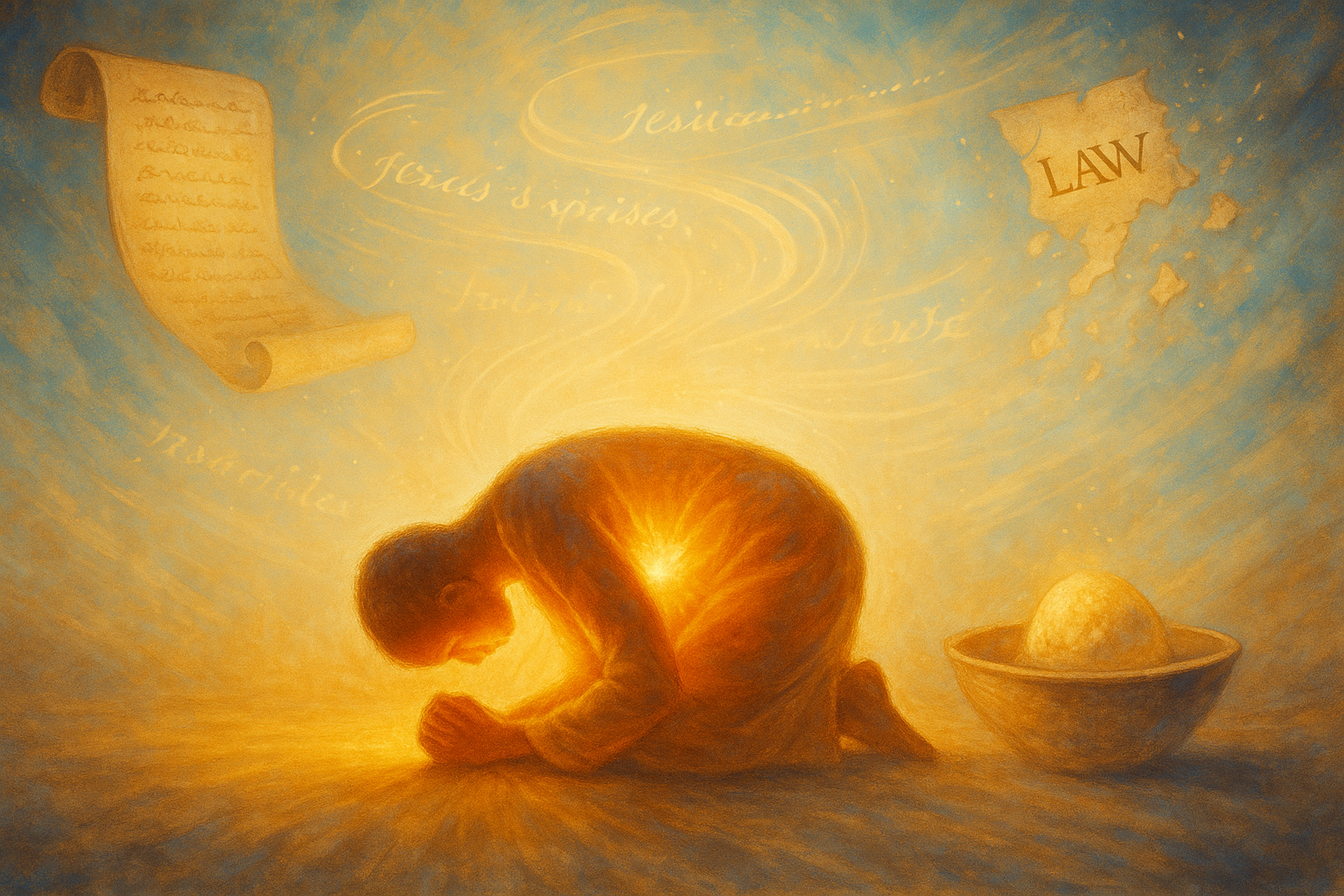A few months ago, I lightly explored this question, and today I'm returning to it because it still feels absolutely relevant: What is the Kingdom of God?
It's not a literal kingdom with borders and thrones. Instead, it's a living spiritual service—a devotional experience unfolding right now in the quiet space of your inner thoughts, feelings, and prayers. Here, the wisdom found in Scripture takes center stage, guiding you beyond traditional religious ideas and denominational theories into a higher, purely inward experience. You step away from the external world of religion and let the Bible’s Mind speak directly, free from human ego or control.
What does this Kingdom feel like? It's like one person gently consoling another after a profound loss. In that moment of shared grief, empathy flows, healing begins, and strength slowly returns. The Kingdom (a mental experience) meets us in our spiritual losses, like outdated beliefs or empty traditions, and offers the comfort that leads to true devotional recovery.
It's also like a brave warrior stepping out of intense battle, victorious and now bearing a respected new title. Your inner devotional self engages in a real struggle against old religious pride, doubt, and habits. With courage, it fights through, emerges refined and humbled, and receives a fresh name, an identity that truly reflects its individual purpose and character.
This process transforms your entire inner dialogue. Just as a warrior earns a name through victory, your thoughts wrestle with themselves under Scripture's guidance, shedding pride to embrace humility. The result? A regenerated devotional life with clear direction: a personal mission, a unique identity, and a way to benefit others.
Scripture calls us to a more authentic devotional life, one where we personally consecrate ourselves to the Bible’s living wisdom. Only by personally carrying our faith's weaknesses and letting Scripture refine them do we find true blessing. Herein Abraham becomes our example: not literally, but spiritually and psychologically. Stepping away from religious crowds and theories to meet our faith alone shows the highest virtue, because only in that quiet space can the Bible’s wisdom fully impact us.
This solitude feels like a wilderness at first; dry, confusing, even painful. Church no longer satisfies, familiar teachings fall flat, and you might feel lost or angry, wondering if something's gone wrong. You've been let down by human-centered religion, and the loss hurts. But Scripture promises this solitary way is actually the right way (Psalm 107). The wilderness won't stay barren; it will rejoice and bloom if you stay within the Bible’s guiding principle.
With courage; like that victorious warrior; you press on. Confusion turns to clarity as the Bible’s words revive your inner devotional life, regenerating your thoughts and justifying your existence with a new name and purpose. This is the living God’s loving kindness: the ongoing service that resurrects your spirit, matures your humanity, and orders your inner world. As Psalm 50 says, those who order their conversation rightly will see the intended salvation.
The Kingdom of God is this present reality: a nurturing mental and inward gift through the Bible’s words for any willing heart. It starts with accepting that something feels off in your spiritual life, then courageously turning alone to Scripture for fact. Don't take this seemingly empty period of your life for granted. Embrace the solitude and discover the living, transformative power waiting within your devotional conversation.



